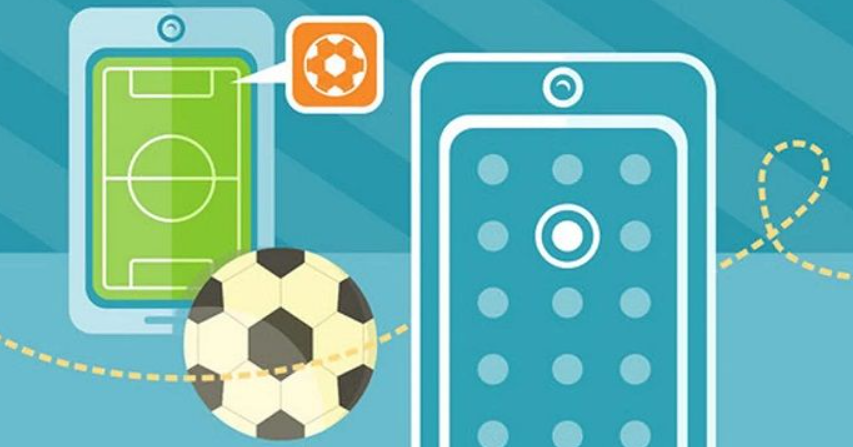Ask any sportsbook executive and they’ll tell you: mobile is the future. But in Argentina, where infrastructure, culture, and convenience all intersect differently, the story isn’t so one-sided. While mobile betting has surged — particularly among younger bettors — desktop still holds ground, especially in more serious, disciplined wagering circles. The preference isn’t just about tech. It’s about context, comfort, and how Argentinians approach risk and rhythm in their betting routines.
Online betting became widely legalised and regulated in Buenos Aires province in 2021, sparking a wave of local and international operators entering the market. Since then, mobile apps have flooded football broadcasts, billboards, and social feeds. But is that where the majority of punters actually place their bets?
Mobile Betting: Fast, Familiar, and Everywhere
Argentina has over 65 million active mobile connections for a population of 45 million. In a country where public Wi-Fi is unreliable and laptops are costly, smartphones became the default tool for everything — banking, messaging, football streams, and yes, betting. For many, mobile isn’t a convenience. It’s the only option.
| Category | Mobile Users | Desktop Users |
| Aged 18–30 | 85%+ | 10–15% |
| In-play/live betting | 78% | 22% |
| Bettors in public spaces | 95% | 5% |
| Parlay/casual bettors | 80%+ | 20% |
| High-stakes/syndicate bettors | 30–40% | 60–70% |
These numbers tell the story clearly: if you’re betting casually or emotionally — you’re betting mobile. On a bus, during a barbecue, at the stadium gate. Tap, swipe, stake.
Why Argentinians Love Mobile Betting
– Accessibility – Not everyone owns a reliable desktop or laptop, especially outside major cities
– Instant live odds – In-play betting has exploded; mobile allows punters to respond in real-time to goals, cards, substitutions
– Banking integration – Most mobile apps sync easily with MercadoPago, Ualá, and local debit systems
– Push notifications – Apps alert users to bonuses, odds shifts, and kickoffs — feeding impulsive habits
– Discreetness – You can place a bet at work or family dinner without anyone noticing
For the average football fan, especially during big matches or Superclásicos, betting is almost inseparable from the matchday experience — and phones make that seamless.

But Desktop Isn’t Dead — It’s Just Different
There’s another layer to the market: the quiet, methodical desktop punter. Often older, often more analytical, these bettors treat gambling more like a craft. They favour wide-screen clarity, spreadsheet access, multi-tab comparison, and cleaner interfaces.
– They run models – Using Excel, Python, or bet tracking software
– They shop lines – Comparing odds across multiple books is far easier on desktop
– They stake bigger – Larger bets feel more deliberate when typed, not tapped
– They avoid distraction – Mobile interfaces are gamified to encourage emotion; desktops feel calmer
– They bet early – Pre-match markets often move; desktop punters are watching the shifts with discipline
For this group, mobile betting is noisy. Too fast. Too prone to error. Desktop represents control, intention, and — ironically — safety.
Key Cultural Differences
Mobile vs desktop isn’t just about hardware. It’s a reflection of how Argentinians relate to gambling in daily life. Mobile bettors are part of the matchday buzz — betting is an extension of fandom. Desktop bettors are often removed from that noise — betting is about value, not emotion.
You also see differences in:
– Bet type – Mobiles dominate in parlays, “fun” markets, and goal scorers
– Sport preference – Desktop punters are more likely to bet on tennis, basketball, or even political odds
– Time of day – Mobile peaks during evening games; desktop rises on weekend mornings and early odds release
– Bonus usage – Mobile bettors are more reactive to promos and boosts; desktop users often ignore them
What This Means for Bookmakers
Operators who want to win in Argentina need to tailor both experiences. Mobile-first design is essential, but desktop deserves investment too — especially in retention. Locals switch between platforms not just out of convenience, but based on mood and strategy. Many start a parlay on mobile and finish it on desktop. Others research odds in a café on their phone, then wait until they’re home to commit on a PC. Smart platforms sync seamlessly between both.
Bookmakers also need to acknowledge regional divides:
– In Buenos Aires: mobile dominates, particularly among Gen Z
– In Córdoba and Rosario: strong hybrid behaviour, often app + web
– In rural areas: desktop betting remains viable through internet cafés or home PCs
– Among syndicates: mobile is rarely used for actual stakes, only info
Mobile might be the present — and certainly the future — but in Argentina, desktop still holds a stubborn place in the betting hierarchy. The punter tapping on their phone during a penalty shootout is real. But so is the one carefully plotting an underdog handicap bet from a desktop screen at 8 a.m. What they share is love for the game. What separates them is how they use the tech. And that difference, for bookmakers and bettors alike, is everything.




